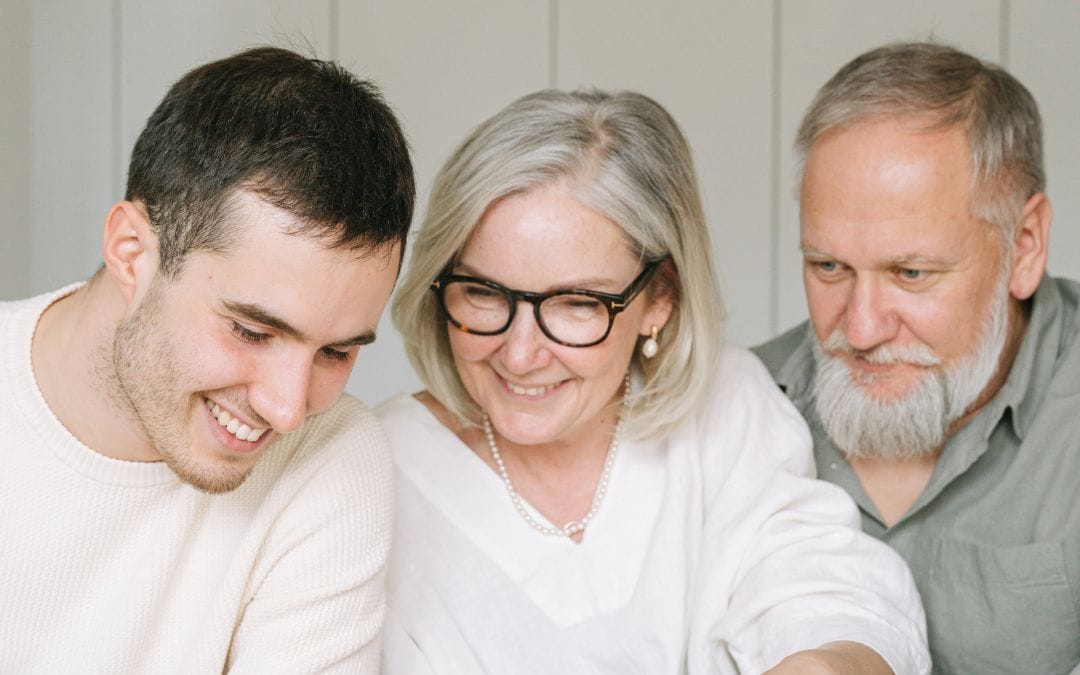When parents age, we experience a whole new side of life as their children. Their plans after retirement involve new hobbies and their living space could transition into a senior community. This phase of life can be full of surprises, but not without worry.
As a child, you want the best life for your parents, and some of these changes feel new—and you may not be sure how to adjust to them.
Aging is a natural part of life, and there’s no reason to fear it. It can be challenging to realize your parents are getting older and need more help than before. For the children of aging parents, here are some tips on recognizing when they may need extra support (and what you can do to help):
Understanding the Signs: When Your Parents Need Professional Help
Accepting that it may be time for your parents to receive professional help can be emotionally challenging.
Perhaps you feel guilty that you do not have the necessary resources or knowledge to meet your parents’ needs. Maybe you feel worried about suggesting they move to a senior living community where they can receive daily care from onsite staff.
The truth is, there’s no shame in working with your parents to ensure they have the necessary tools for a wholesome, healthy, and fulfilling senior experience. If you’re brand new to this experience, here are some ways to recognize when your parents require additional (and even professional) help:
They Don’t Remember to Take Their Medications
Prescribed medication is a crucial part of overall health and wellness. Suppose your parents don’t remember to take their medications but rely on you to remind them. In that case, it may be time to recommend moving to an assisted living facility where staff can regularly monitor and distribute medications.
They’re Rapidly Losing or Gaining Weight
If your parents are having significant health changes, such as sudden weight loss or weight gain, a professional analysis can help diagnose the root of the issue—and how to address it.
They’re Falling More Often
Frequent falls or general loss of coordination can limit one’s overall quality of life and ability to care for themselves. Senior communities and living spaces use floor plan designs that reduce the risk of falls. These designs can include removing stairs, replacing tight hallways with open-space areas, wider doorways between rooms, and more easily-accessible restrooms with walk-in showers and taller toilets.
Increased Isolation
If your aging parents have become less willing to engage in social activities, it may be time to evaluate if a senior community could help open their social circle. Social isolation is proven to worsen senior citizens’ overall health and wellness. It can even contribute to many health problems, increasing the risk of everything from dementia to cardiovascular disease. Senior communities take the stress out of meeting new people by offering a variety of activities such as exercise classes, themed socials with live music, Bible study classes, arts and crafts, etc. Your parents can choose to join one or all, in their own time.
Depression or Loss of Interest in Hobbies
Suppose your aging parents display signs or symptoms of depression, such as loss of interest in hobbies. Hobbies are an essential part of anyone’s overall mental strength and health. If we’re not engaging our brains with the things we love, it’s easy to become stagnant. Encourage your parents to participate in activities at the local senior center or their living community. If they’re worried about going alone, volunteer to join them for an event.
Neglecting Household Chores
If your aging parents have begun neglecting basic household chores, it could be a sign that they need professional help. At Vineyard Senior Living, we understand that by taking care of the small household chores for our residents, they’re better able to focus on doing the things they love.
Adjusting to Your Parents’ Age
Adjusting to your aging parents can be challenging, but honesty and empathy will always be the best solution. Have a conversation like, “Mom? Dad? I’m worried about you because of ___, can we explore some different options that would help you live a happier, healthier life?”
Even if your parents aren’t ready to talk about receiving help, understand that you are doing your best. When in doubt, consult with professionals who can help guide you on doing the right thing.

